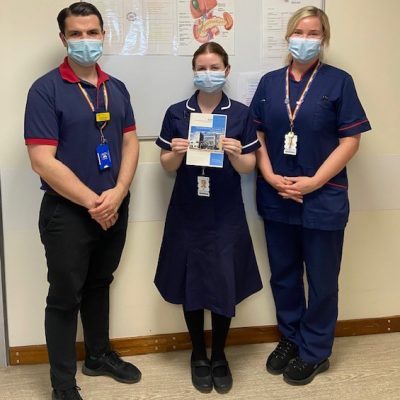The project has improved the post-surgery experience for over 300 cancer patients. It has also made efficiencies in the service that equate to a £221,000 recurrent saving. Additionally, it has created and sustained a culture change within the department which has moved the team over to innovative thinking and evidence-based practice.
Understanding the Problem
The Hepatobiliary Unit at the Freeman Hospital is the regional centre for liver and pancreatic surgery for the North East and Cumbria. The centre carries out over 200 liver and pancreas resections, where a part of the organ is removed, every year – as well as offering a range of therapies.
Surgery of this nature is incredibly demanding for patients and the department recognised that their length of stay data was higher than other peers within the Shelford Group.
The team set out on an improvement journey that sought to:
- Improve quality of care for patients
- Create evidence-based and patient-centred pathways
- Ensure outcomes matched those of leading centres internationally
- Reduce length of stay and readmission rates across all index procedures
- Standardise care and practice
Improvements made
Using improvement techniques, the team created patient-centred pathways that increased patient satisfaction, reduced length of stays and standardised practice and care for all ten consultants in the department.
They appointed an ERAS specialist nurse with a dedicated clinic time to review all inpatients and also make sure pathways are adhered to. This has improved the continuity of care for patients.
Discharge follow up telephone reviews were introduced on day 1, 3, 5, 7 and a face-to-face review on day 14 in clinic. This is in addition to regular consultant review clinics 4-6 weeks post-operatively. Patients now have a direct point of contact at home with the specialist nurse and have access to a rapid access clinic if they feel unwell or need reviewing urgently.
Six months of staff education and pathway development were carried out before the first patients came through. The team continues to review and improve its practices using the PDSA cycle.
Erin Neil, Clinical Nurse Specialist and ERAS lead in Hepatobiliary Surgery, said:
“The biggest change we saw throughout this improvement project was within our own culture. Our MDT teams and ward nurses all began to foster a real culture of innovation and we are now all dedicated to continually and progressively improving patient care – in a high support and high challenge environment.”
What this means for patients
Patients now get to go home sooner after liver or pancreas resection surgery. They also receive more education prior to surgery, opportunities to ask questions have increased and ERAS principles are presented to patients in clinic to prepare them for their surgery.
Patient comments include:
“Everyone involved in my care has been both very informative and supportive. Having Whipple surgery has had a huge impact both physically and mentally. Couldn’t have got through this without their support.”
“Being able to contact the specialist nurse post-discharge was invaluable to ask for advice about pain and for support.”
Erin added: “Quality improvement within our Trust is exceptional – it is so supportive of ideas and services that can genuinely make a difference to patients. I am so proud of the care our patients receive because of our new ERAS service. It can only get better and I’m really excited to see how it grows.”
